Why Are Bananas, Nuts, and Crackers the Only Foods That Say ‘Crazy’?
An investigation into how three snacks became associated with madness.
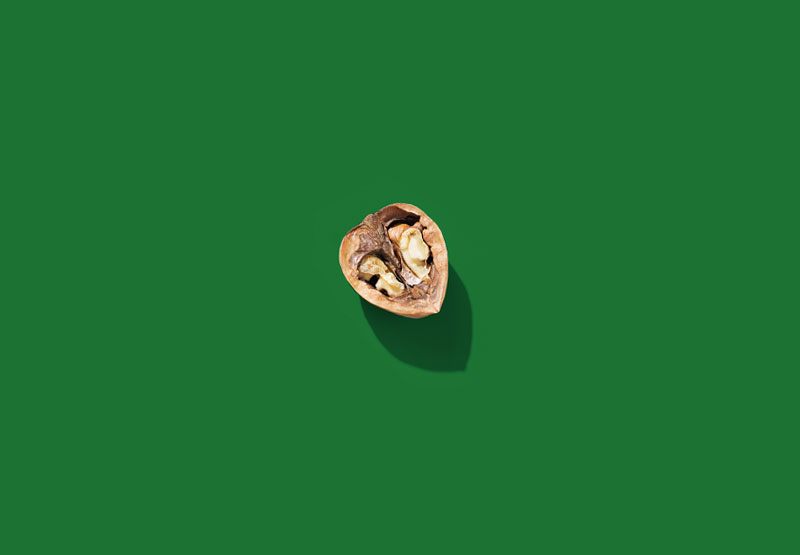
There is an episode from the 1972 first season of the television show M*A*S*H titled “Bananas, Crackers, and Nuts.” In it, Hawkeye decides to secure a rest and recuperation break from the war by faking insanity, which he does by, among other things, pretending to be in love with another man. (It’s not a good episode in terms of social awareness.) The three foodstuffs in the episode’s title are the only three in American English that can also mean “crazy.”
It’s worth noting that in this article—as in the M*A*S*H episode—we will not be very specific in defining the word “crazy,” largely because the terms we’re looking at here are not in themselves specific. Calling someone “nuts” isn’t exactly a diagnosis. We’re also not really examining the history of the way people talk about mental illness. What we’re doing is looking at a linguistic blip: How did three, and only three, food-related terms become shorthand for mental illness?
There are reasons, or at least guesses, for the winding path these three terms took. But their etymologies are not related, and show just how weird and broken and non-systematic language can be. To put it in another, definitely worse way: What if….it’s language itself….that is bananas, crackers, and/or nuts?


Let’s get started with “banana.” The earliest records of the banana plant come from Southeast Asia and Papua New Guinea, but the word probably comes from the West African language Wolof; bananas have been grown in West Africa for thousands of years. The fruit was first brought to the New World in 1516, by Portuguese sailors, where it became widely grown throughout the tropics.
There are a few ideas about how the word banana, and the phrase “go bananas,” became a way to indicate craziness. More specifically, though, to go bananas means to lose control; it is a temporary insanity, one that usually has a known cause. You are not born having gone bananas.
The Routledge Dictionary of Modern American Slang and Unconventional English traces the idea of bananas relating to craziness only back to the late 1910s; The Concise New Partridge Dictionary of Slang and Unconventional English roughly agrees, with its own etymology going back to 1924. These sources claim that the crazy banana meaning comes from the phrase “banana oil,” which, in flapper slang, meant “nonsense.”
Typically, the substance referred to as banana oil is amyl acetate, which is, insanely, used as both a paint solvent and as a flavoring. (It smells strongly, but not precisely, of bananas, which is partly why banana-flavored candies are distinct but not really banana-flavored.) Why did flappers like to use the phrase “banana oil” to mean “nonsense”? Possibly it’s related to “snake oil,” but I suspect it’s also because the word “banana,” coming from a language that has not given English very many words, sounds unusual to the ears of English speakers.
In any case, use of the phrase “banana oil” died out for a few decades. But by the early 1960s, using the word “bananas” for something crazy had come back. A 1957 Li’l Abner cartoon used the phrase in roughly the modern way, and it soon caught on in counterculture language. (Tom Wolfe used it a few times.)
An oft-cited alternate explanation is that, when monkeys are presented with a bunch of bananas, they will go crazy in anticipation. Studies indicate that captive primates do like bananas, but not notably more than other fruits; a 1936 study found that the tested monkeys preferred grapes. In the U.S. and Western Europe, both bananas and monkeys are associated with the tropics, and thus with each other; it’s likely that the tighter association came from the initial publishing of the Curious George books in the 1940s. In any case I don’t really buy it; monkeys are associated with bananas, sure, but in sort of a cute, fun way, not in a way that lends itself to the word “bananas” meaning a lack of self-control. Going bananas is neither cute nor fun.
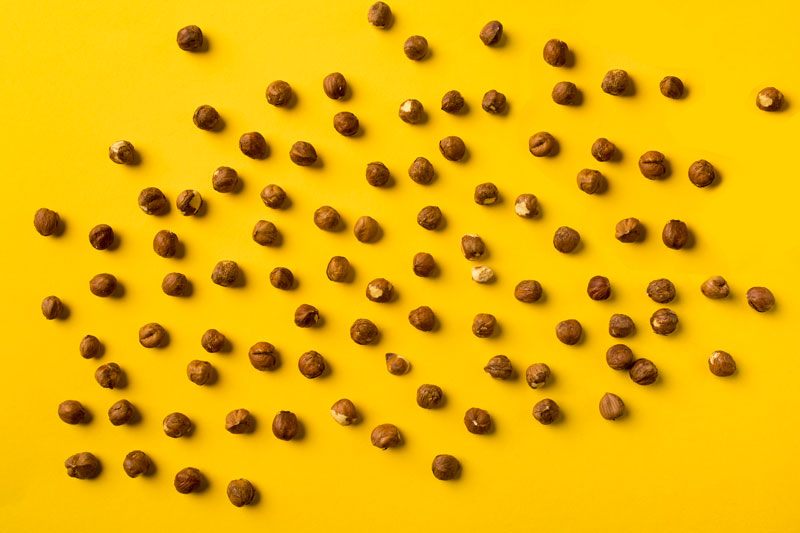
The word “nut” is a complete mess; there are several times more definitions of the word than there are letters in it. Here’s just a short list of those. A nut can be:
- A crazy person.
- A hard-shelled fruit-and-seed combo.
- A category of various seeds and drupes which are not technically nuts as seen in Definition Number 2.
- A testicle.
- A piece of metal with a hole in it which is screwed onto a bolt.
- Semen (as a noun) or to ejaculate (as a verb).
- An enthusiast of something.
- A person’s physical head.
- A person’s metaphorical head, or mental state.
- A sum of money required to set up a business.
- An exclamation roughly equivalent to “darn it!” (Plural only, for this one.)
There are even more than that! (Apparently there’s something called a “nut flush” in poker.) In any case, the word “nut” has to be in the running for most possible definitions of a single word in the entire English language.
Several of these definitions come back to the physical description of the botanical nut: a hard, vaguely roundish outer shell with something valuable and/or delicious inside. In this way it’s pretty obvious how the word “nut” could be applied to the human skull. To be “nuts about” someone, or something, means that thoughts about that person are thoroughly embedded in your head. That definition dates back, according to some sources, as early as 1785.
Coming later is the idea of nuts as crazy; that use was first seen in 1908, in a newspaper comic strip called Mutt and Jeff. To be “off one’s nut” meant to be separated from your head, and thus your senses. That eventually was shortened to the current use, in which someone can simply be “nuts.”

The word “cracker,” or “crackers,” has significantly different definitions depending on which national form of English you speak. For North Americans, as a food, it is a hard, flat, savory baked good. In the U.S., it’s also a derogatory word for poor white people, albeit sort of outdated. In the U.K., a cracker is a noisemaking paper cylinder most often seen at Christmas—Americans do not really have this—or a good example of something, as in “that’s a cracker of a pudding.” And of course no matter where you are, something can be cracked, meaning slightly but not completely broken.
The U.K. also has the option to “drive someone crackers,” which is pretty similar in meaning to going bananas, or driving him nuts. It was first seen in soldier reports from World War I, but it’s sort of hard to figure out whether these early uses were using the word to mean “crazy.” The word is sometimes used to describe things that are loud; think of firecrackers. It’s also used to mean “break into,” coming from that idea of something that is slightly broken—just broken enough to grant access. You’ll see that usage in the word “safecracker.”
In any case, it’s most likely that the word derived from a peculiar mutation within British English which is commonly associated with public schools. In some instances, nouns and adjectives can be made informal with the addition of the ending -er or -ers. Rugby, or a person who plays rugby, can be altered to “rugger.” Instead of being pregnant, you can be “preggers,” and instead of eating breakfast, you can eat “brekkers.”
I think it’s most likely that “crackers” came from this change; the word “cracked,” before that point, had been used to indicate craziness. Cracked, in most senses, means appearing almost whole, but in fact being broken. Until very recently—and, in many cases, still today—this was a pretty common understanding of mental illness, if a wildly incorrect and insensitive one. “Unbalanced,” “troubled,” “disturbed,” these are all essentially ways of saying that something is wrong. Cracked, too. It’s not a tremendously helpful way of understanding mental illness, as a society, but it is pervasive.
That means, funnily enough, that “driving someone crackers” does not actually have anything to do with the food known as a cracker. Which makes sense! In the U.K., after all, it’s called a biscuit.
Gastro Obscura covers the world’s most wondrous food and drink.
Sign up for our regular newsletter.





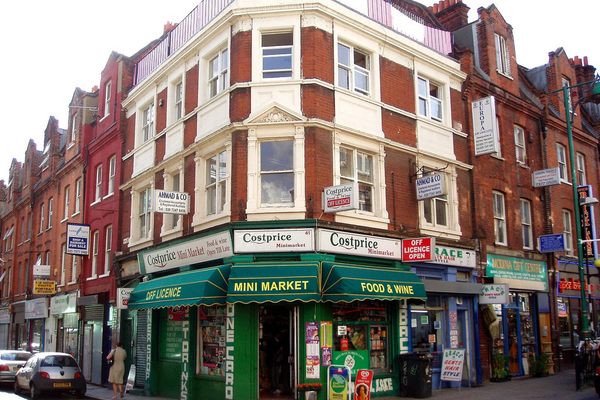

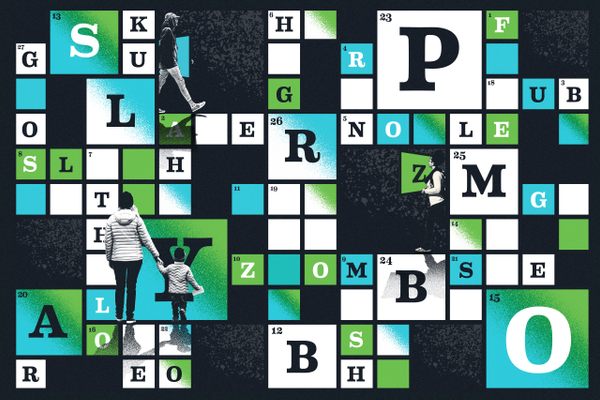
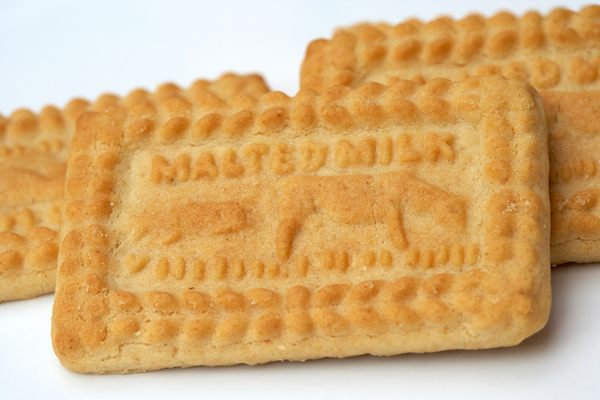















Follow us on Twitter to get the latest on the world's hidden wonders.
Like us on Facebook to get the latest on the world's hidden wonders.
Follow us on Twitter Like us on Facebook